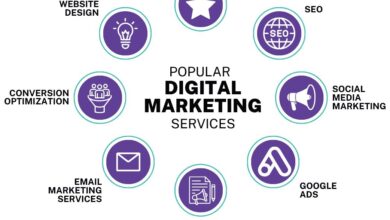
Unlocking the Power of Consulting Services
In an increasingly complex and competitive business landscape, consulting services have emerged as a cornerstone for organizational growth and success. These services offer expert guidance and actionable strategies to help businesses navigate challenges, optimize operations, and achieve their objectives effectively.
Consulting services are not limited to large corporations; small and medium-sized enterprises also benefit greatly from professional advice tailored to their specific needs. By leveraging the expertise of consultants, companies can address gaps in knowledge, overcome obstacles, and drive sustainable growth.
This article explores the types of consulting services available, their key benefits, and how businesses can select the right consultant to maximize their potential.
Types of Consulting Services
Consulting services encompass a wide array of specializations designed to address specific business needs. Below are the key types of consulting services that organizations commonly rely on:
- Management Consulting
- Focuses on improving overall business performance and organizational structure.
- Examples: Business process optimization, leadership development, and organizational design.
- Financial Consulting
- Provides expert advice on financial management, planning, and strategy.
- Examples: Budgeting, investment strategies, and financial risk management.
- Technology Consulting
- Helps businesses adopt and implement the right technologies to enhance operations.
- Examples: IT system integration, software selection, and cybersecurity planning.
- Marketing Consulting
- Aims to boost brand visibility and market reach through tailored strategies.
- Examples: Digital marketing campaigns, SEO optimization, and brand positioning.
- Human Resources Consulting
- Assists organizations in managing their workforce more effectively.
- Examples: Recruitment strategies, employee training, and performance evaluation systems.
- Operations Consulting
- Focuses on streamlining processes and improving efficiency across departments.
- Examples: Supply chain optimization, inventory management, and quality assurance.
- Strategy Consulting
- Guides businesses in setting long-term goals and developing actionable plans to achieve them.
- Examples: Market entry strategies, competitive analysis, and growth planning.
Each type of consulting service plays a vital role in addressing unique challenges and unlocking new opportunities for businesses of all sizes.
Benefits of Consulting Services
Consulting services provide businesses with unparalleled advantages, offering expertise and strategic insights that drive growth and innovation. Here are the key benefits:
- Expert Guidance and Industry Insights
- Consultants bring specialized knowledge and experience, helping businesses make informed decisions.
- Examples: Staying ahead of market trends or adopting best practices.
- Objective Perspective
- External consultants offer unbiased advice, free from internal politics or emotional biases.
- Examples: Identifying inefficiencies or uncovering untapped opportunities.
- Cost and Time Efficiency
- Instead of hiring full-time experts, businesses can access top-tier advice on-demand.
- Examples: Temporary project management or one-time strategic planning sessions.
- Improved Operational Efficiency
- Consultants streamline processes, optimize workflows, and implement effective solutions.
- Examples: Reducing production costs or enhancing supply chain operations.
- Risk Mitigation
- Professional consultants identify potential risks and develop strategies to mitigate them.
- Examples: Financial risk assessments or cybersecurity protocols.
- Enhanced Business Growth
- By leveraging expert advice, companies can achieve scalable and sustainable growth.
- Examples: Expanding into new markets or launching innovative products.
- Focus on Core Activities
- Delegating complex challenges to consultants allows businesses to focus on their strengths.
- Examples: Allowing leadership to prioritize strategic goals rather than operational issues.
Consulting services empower organizations to overcome challenges, seize opportunities, and achieve their objectives with confidence and clarity.
How to Choose the Right Consultant
Selecting the right consultant is a crucial step to ensure the success of your business objectives. Here are the essential factors to consider when choosing a consulting service provider:
- Define Your Goals and Needs
- Clearly identify the challenges or goals you want the consultant to address.
- Examples: Is it improving operational efficiency, financial planning, or strategic growth?
- Evaluate Their Expertise
- Look for consultants with a proven track record in your industry or the specific area of need.
- Examples: Industry certifications, case studies, or testimonials from previous clients.
- Assess Communication and Compatibility
- A good consultant should communicate effectively and align with your company’s culture and values.
- Examples: Transparent reporting, regular updates, and collaborative problem-solving.
- Check References and Reputation
- Research their reputation and speak to former clients to gauge their reliability and impact.
- Examples: Look for positive reviews on professional networks or word-of-mouth recommendations.
- Analyze Their Approach
- Ensure their methods align with your business philosophy and operational style.
- Examples: Do they emphasize innovation, or do they rely on traditional practices?
- Evaluate Cost and ROI
- Consider the cost of their services in relation to the value and outcomes they promise to deliver.
- Examples: Choose a consultant who offers measurable results rather than just theoretical advice.
- Test Their Problem-Solving Skills
- During the selection process, present a hypothetical challenge and evaluate their approach to solving it.
- Examples: Analyze their critical thinking, creativity, and depth of insight.
- Review Contracts and Deliverables
- Clearly outline the scope of work, timelines, and expected outcomes in a formal agreement.
- Examples: Define project milestones, key performance indicators (KPIs), and reporting frequency.
By carefully evaluating potential consultants using these criteria, businesses can ensure a fruitful partnership that drives meaningful results.

Conclusion
Consulting services are a vital resource for businesses seeking to navigate challenges, optimize operations, and achieve long-term success. By leveraging the expertise of professional consultants, companies can gain valuable insights, mitigate risks, and unlock growth opportunities.
Choosing the right consultant requires a thoughtful approach, considering factors such as expertise, compatibility, and return on investment. When done correctly, this partnership can bring transformative changes and drive businesses toward achieving their goals.
Investing in consulting services is not just an expense; it is a strategic move toward sustainable and impactful progress in a competitive market.



